As the genetic birthplace of Arabica coffee, Ethiopia offers the world a little piece of immemorial authenticity with each green bean it exports.
Since launching the Garden of Coffee brand in late 2016, renowned social entrepreneur Bethlehem Tilahun Alemu has tried to channel this historic equity to create economic opportunities in her native Ethiopia, while also preserving traditional Ethiopian coffee roasting and serving practices.
Now Alemu and the Garden of Coffee team are planning to introduce the old ways to the newest, biggest coffee market in the world: China. Alemu has confirmed with DCN that Garden of Coffee plans to open some 100 cafe roasteries in China by 2022, with hopes to additionally ship some five tons of roasted Ethiopian coffee to the Chinese market over the next five years.
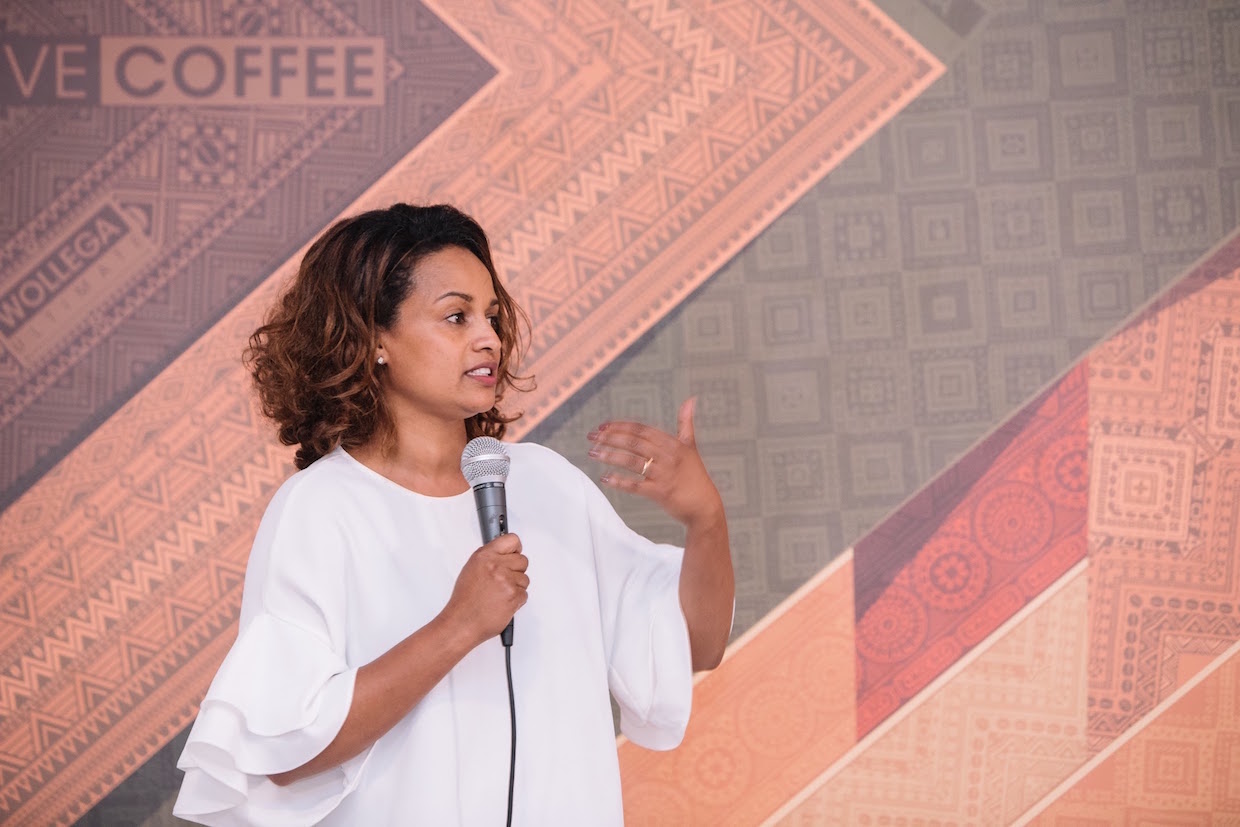
Bethlehem Tilahun Alemu at the Nov. 8, 2017, grand reopening of Garden of Coffee in Addis. Photo by Aron Simeneh. Courtesy of Garden of Coffee.
“From the opening of our first cafe roastery here in Addis, we have attracted a large Chinese guest base,” Alemu told DCN via email. “We also always knew that the Chinese market opportunity is huge, with China essentially being where the U.S. coffee market was 40-50 years ago — so it was logical for us to expand into China.”
In partnership with a trading company called Suzhou Reyto, Garden of Coffee has already established a business presence in Shanghai, and Alemu said she expects the first GOC Chinese roastery cafes to open this coming Spring. In the meantime, the companies have launched a WeChat-based marketing campaign, with plans to immediately roll out online sales, Alemu confirmed.
While most major global coffee chains and upstarts like Chinese-born Luckin Coffee have all made aggressive retail investments in the Chinese market, Alemu suggested GOC is in a unique position to attract a new wave of coffee consumers.
She described “major drawbacks” in the way coffee is traded globally that tend to stifle coffee sector actors in producing countries while leading to profits for roasters in consuming countries. The GOC approach, in contrast, is designed to restructure the way value is created throughout the chain, creating more income for Ethiopian producers and the company’s own roasters and retail employees.
“On the specialty side, things seem better, but as we have all seen, these are more marketing gloss than impactful change,” Alemu said of traditional coffee trade models. “Fairtade, direct trade, etc., while perhaps well intentioned, will never move the needle of prosperity here in Ethiopia in the same way that us building and controlling a globally present coffee brand will.
“And doing that within the rubric of our cultural heritage gives us the authentic leverage to build something that is meaningful and has the DNA to truly become something as enduring and impactful, if not more, than the biggest brands currently operating.”
Alemu has already seen this approach find success through another brand she founded, Addis-based SoleRebels, which utilizes Fairtrade-like practices in designing and manufacturing footwear made from recycled materials, such as used tires for the soles. That company distributes products to some 30 countries, and it currently has 17 franchise locations in Ethiopia, North America, Europe and Asia.
Yet while shoes are everywhere, there’s only one birthplace of coffee. This fact, said Alemu, puts GOC in a unique position to build a brand that is distinctly Ethiopian, and that can benefit the Ethiopians involved from seed to cup.
“Our model is about fundamentally realigning where and how value gets created, which we know comes from the end consumer side and from the brand equity side,” she said. “Prosperous brands are able to elevate and spread that prosperity to partners inside the value chains in a totally different and comprehensive manner than the existing models.”
Nick Brown
Nick Brown is the editor of Daily Coffee News by Roast Magazine.



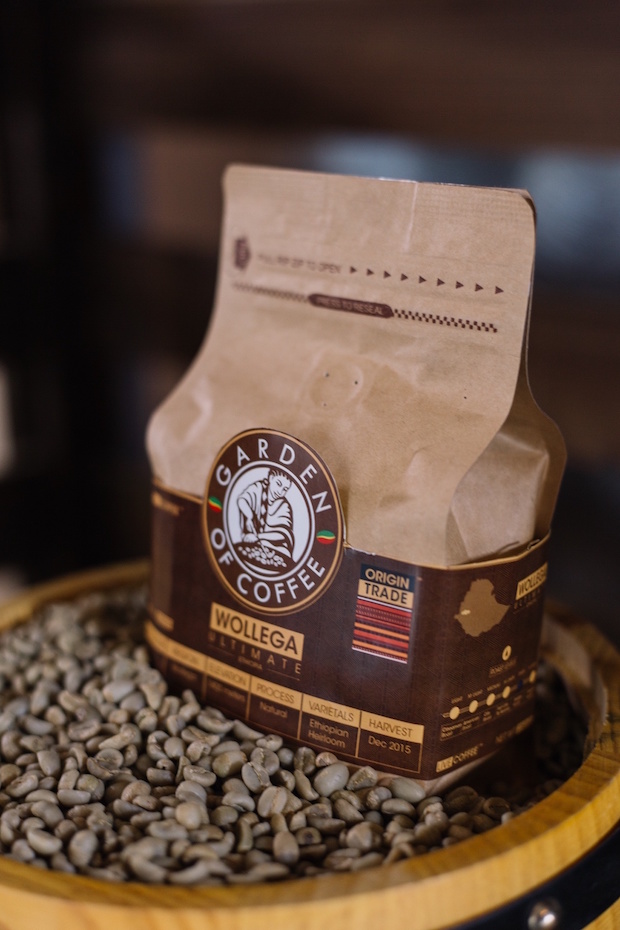
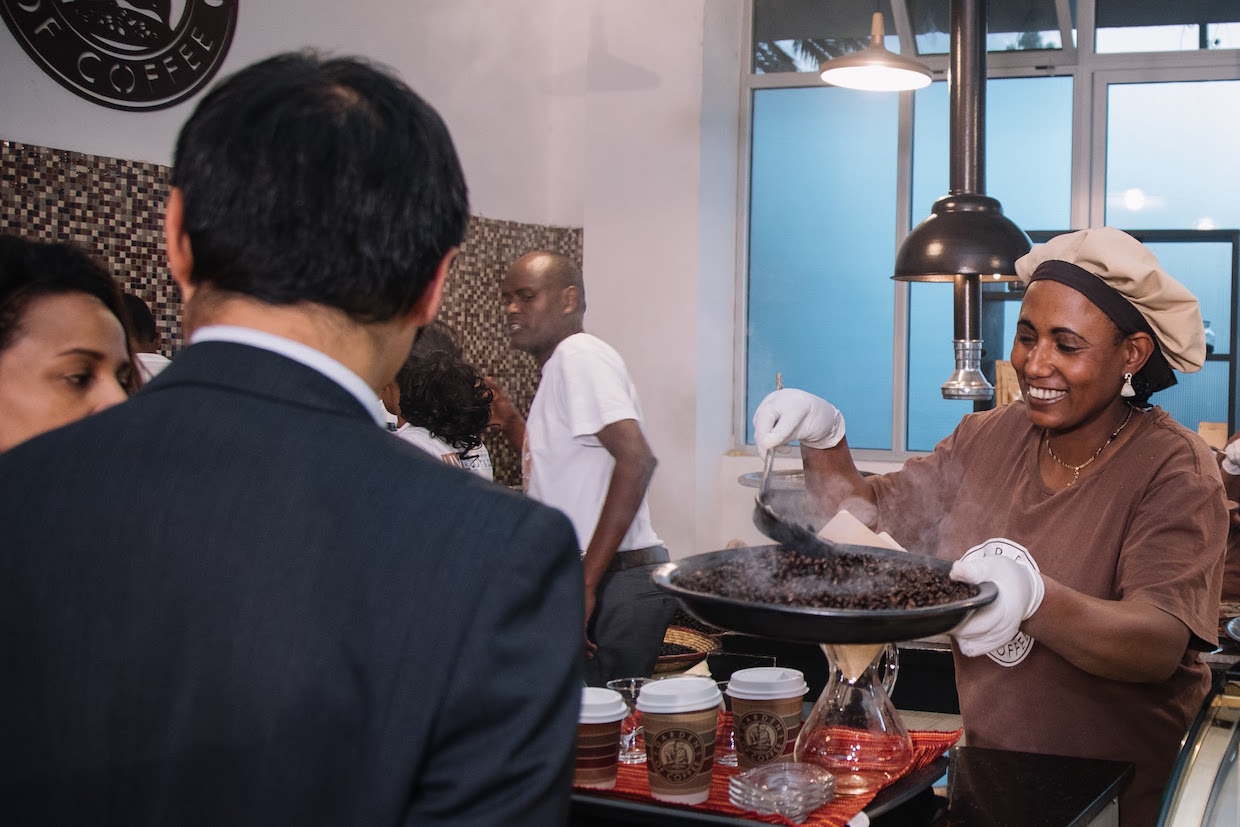
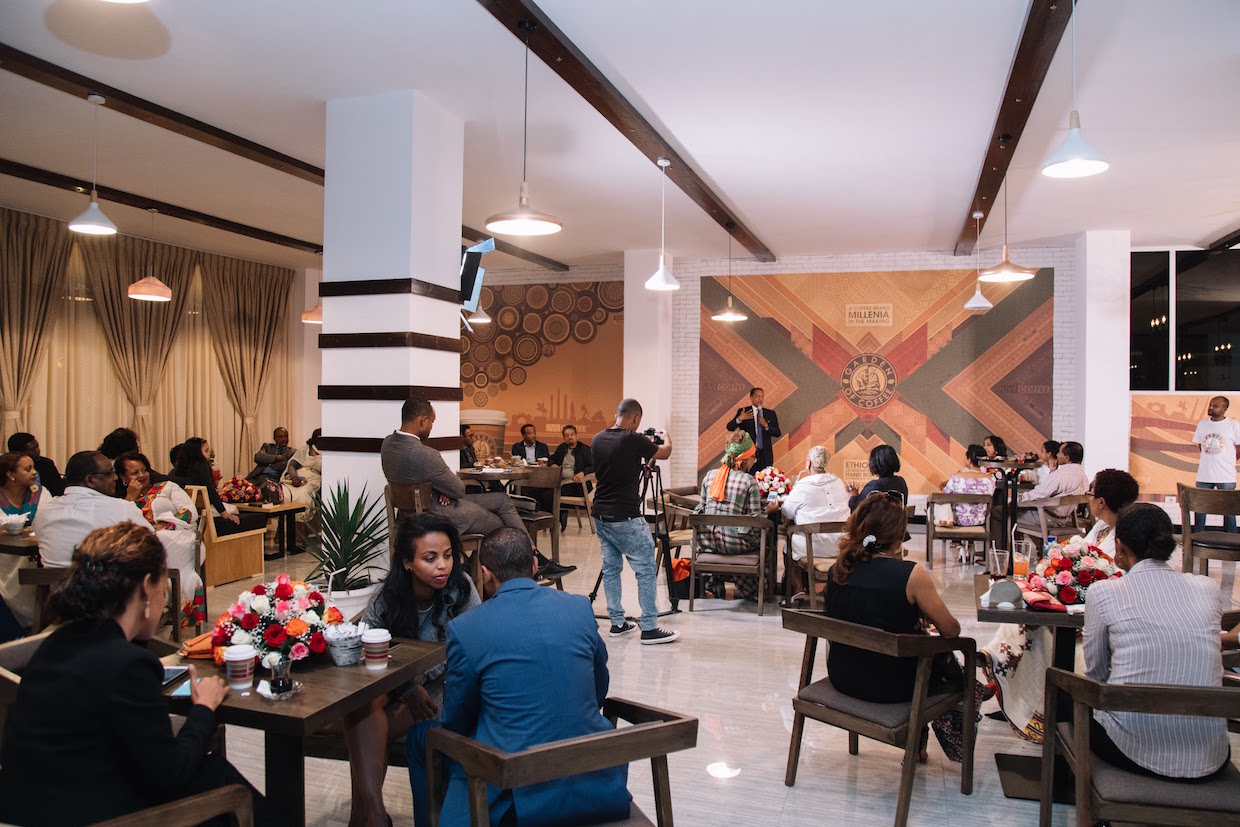

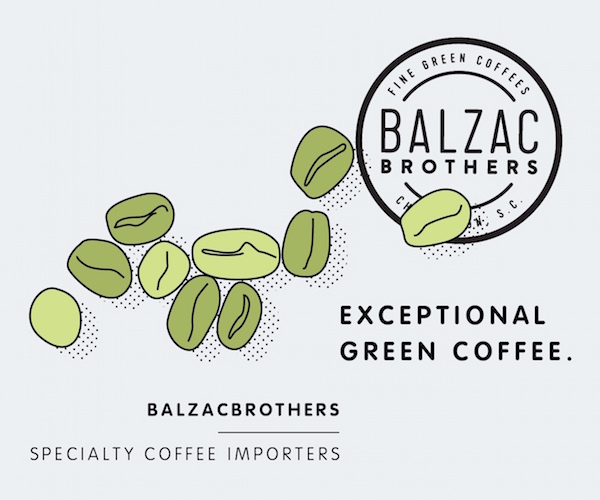





Comment